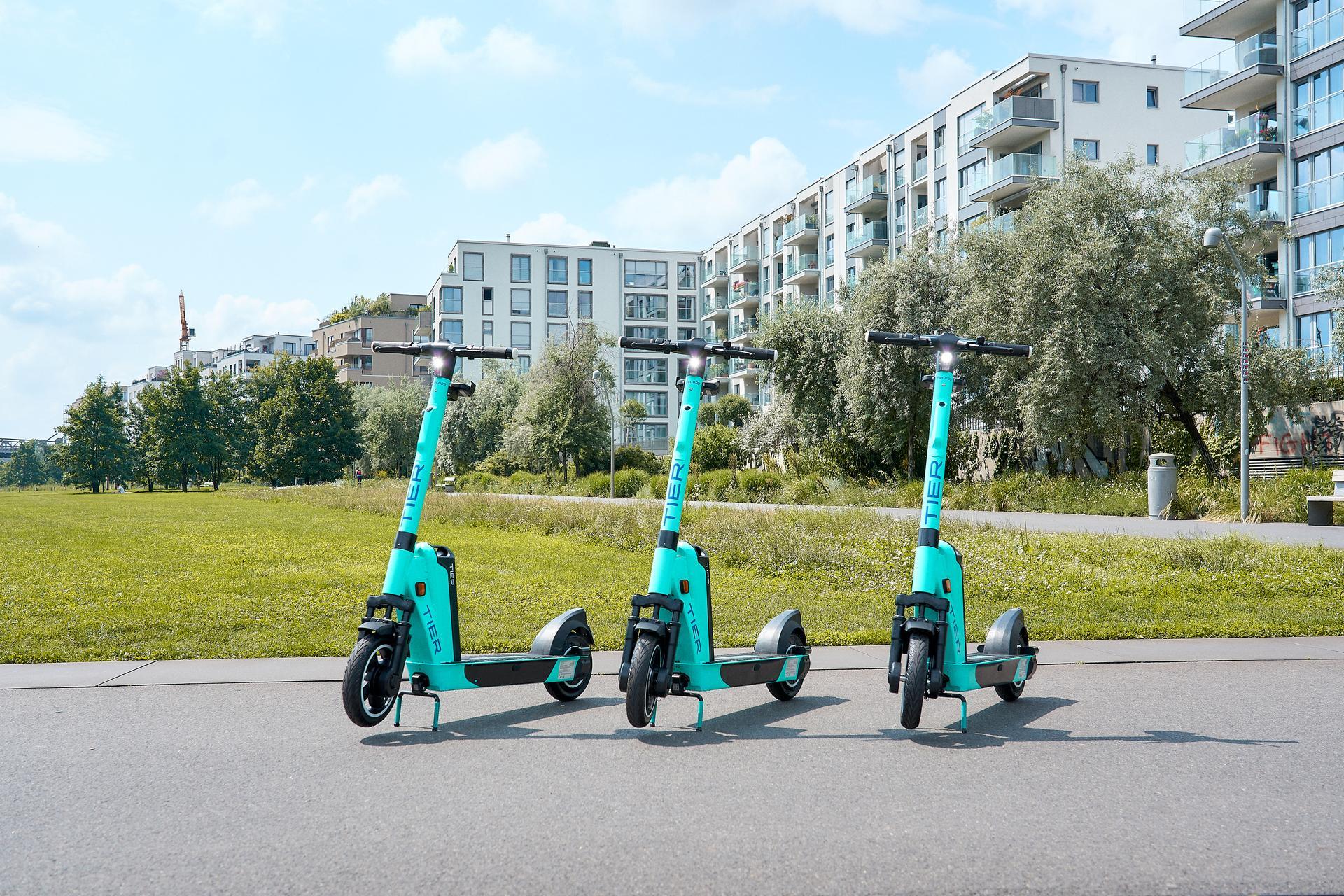Mobility
Cities
Micro-mobility can unleash huge potential in Copenhagen
January 23, 2023
By Frederik Heesch Hansen, Public Policy Manager Denmark

During the first months of 2023, the Technical and Environmental Committee in Copenhagen Municipality evaluates the current e-scooter scheme in the city. Already in late summer 2022, a new coalition of left and right wing parties aired their ideas about a more relaxed e-scooter scheme as opposed to the current exclusion from large parts of central Copenhagen combined with shared parking zones in the rest of the city. If relaxation becomes reality, it is good news for Copenhagen's climate plan. Because the e-scooters help promote the transfer of trips from fossil cars to electric vehicles, where they constitute a 'first/last mile' solution in connection with public transport.
Since autumn 2021, e-scooters have been back in Copenhagen after a nearly one year long ban from the city streets. This surprises quite a few, because the e-scooters are not as common to see anymore as they were back in 2019, when up to 20 different companies tried to get a share in the market. The reputation of e-scooters in Denmark to a large extent is self-inflicted by the industry, which in an unregulated environment saturated the cities with too many e-scooters. Most people remember the consequences; tilted e-scooters were a nuisance for most people who moved around the city, scooters in harbors and canals, etc. Regulation was necessary.
Today the case is different; the Copenhagen market is heavily regulated to 3,200 e-scooters distributed among four operators. Unlike before, the e-scooters must be parked in dedicated and shared parking zones and cannot be parked in central districts - and a great nuisance for both citizens and visitors in Copenhagen that don’t know the local e-scooter scheme on the back bone. The rules are simply too rigid to run an operation that also makes sense for the riders. And while parking zones are mandatory, the city still has not made up its mind about physical parking infrastructure, making it difficult for e-scooter users to understand how to park without bothering others. Imagine that the bus companies are allowed to operate buses, but without allowing them to direct the passengers where they can get on and off. It would be impossible to know where to take the bus - both from and to.
Shared micro-mobility solutions complementing public transport create new opportunities to move around the city without the car for the benefit of the climate, more space in the urban space and, not least, health by less air pollution. It opens up other ways to pursue the city’s ambitions for a climate-neutral capital in 2025, for car-free streets and for more space for play, culture and recreation. And it connects the public transportation hubs for bus, train and metro and serves as a "first / last mile" solution - on the connection to work, family, and the dinner appointment.
The industry has come a long way already since 2019 and has developed the world's cleanest operating models – also in Copenhagen. In the past year, we have exercised and proven a matured operation, operating e-scooters in several parts of the city for the benefit of the municipality. But one thing is what’s good for the municipality, another is what is what is good for the city.
Like we experience in many other cities, it is about balancing operation and regulation. And likewise experience tells us that serious micro-mobility actors like TIER, have a key role in educating regulators in the mechanisms of the operations to find that good balance place that unleashes the potentials in the best possible way. We have previously seen this in the Nordic countries where cities like Oslo in Norway and Borås in Sweden have enlightened regulations by consulting with us. And the timing is now right in Copenhagen for a better utilization of the value propositions that shared micro-mobility brings: Increasing mobility by complementing the public transport system while reducing car rides – all climate neutral.
That is why we also very much welcome it when members of the Copenhagen City Council after a year of good operation and constructive dialogues are open to a relaxation of the rigid e-scooter scheme. A relaxation that could open up the central areas in Copenhagen for e-scooter operation and place better markings in the city for parking. But more relevant, a relaxation that could unleash the inherent potentials from micro-mobility. Potentials of reducing clutter and impassibility, reducing toxic air pollution from unnecessary car rides, and allowing for more public space for the people who live here.